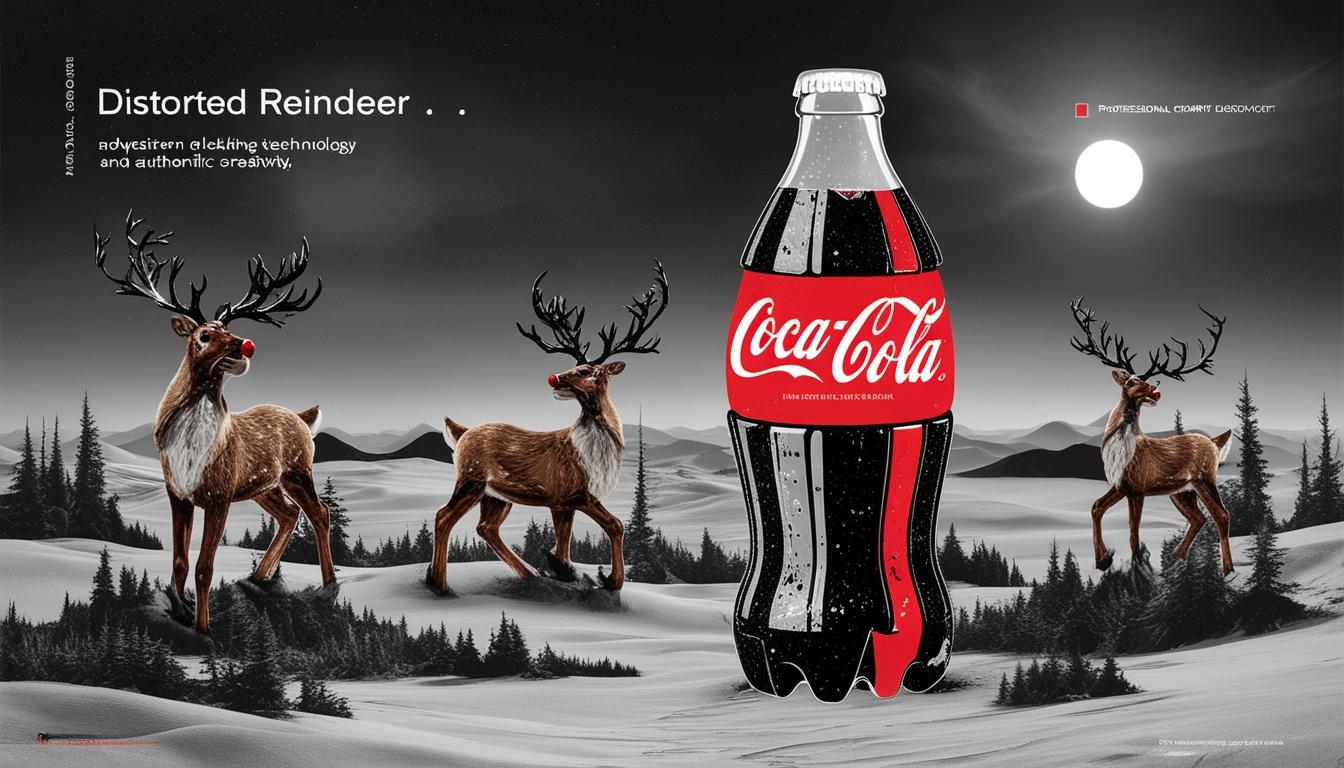The recent foray of Coca-Cola into AI-generated advertising has sparked significant discussion regarding the implications of artificial intelligence in creative industries. This innovative yet controversial move comes amidst a technological landscape where businesses increasingly adopt AI to enhance productivity and reduce costs.
Coca-Cola's latest advertisement, produced by a venture called "Real Magic AI," features a surreal visual approach that has left many viewers both perplexed and unsettled. This Christmas-themed commercial depicts various scenes—a bottle of Coca-Cola being opened, serene landscapes, and poorly rendered wildlife—which quickly devolve into disjointed and uncanny portrayals of reindeer and polar bears. Viewers have expressed discomfort with the jarring quality of the imagery, which reflects current advancements in AI but simultaneously illustrates its limitations. Nathaniel Underwood, a reporter for Central Wisconsin News, described the animation as "wholly unnerving," and pointed out the disturbing motion of these creatures alongside the ‘deformed trucks’ delivering the product.
The ad's reception raises critical questions about the use of artificial intelligence in marketing. Underwood notes the stark contrast between human creativity and AI's derivative output, asserting that corporate giants, relying heavily on technology to bolster profits, may overlook the value of authentic artistic expression. He posits that Coca-Cola's choice to employ AI over human talent in crafting this commercial indicates a disturbing trend where creativity is sacrificed for efficiency, with corporations banking on audiences to remain oblivious to the disparity in quality.
Amidst growing concerns over the authenticity and integrity of AI-generated content, many have started to question public perception and acceptance of such technologies. Underwood reflected on the pervasive nature of poorly executed AI images on social media, suggesting an alarming trend where the public may lack the media literacy to discern reality from AI-generated illusions. This phenomenon could signify a shift in visual culture, where people accept automated portrayals as legitimate representations.
This incident encapsulates the broader discourse surrounding AI automation and its potential effects on various sectors, particularly in marketing and advertising. The industry is witnessing an acceleration in the integration of emerging technologies with projections indicating that businesses increasingly favour AI to stay competitive in a rapidly evolving marketplace. As companies like Netflix utilise AI for creative backgrounds in animated productions, the trend raises questions about the implications for human artists and the creative workforce.
Observers note that while machine learning offers impressive capabilities for streamlining processes, there remains clear apprehension about its current application in fields traditionally dominated by individuals. As AI continues to evolve, many stakeholders ponder the long-term consequences of such reliance on technology and the possible obfuscation of genuine human expression in favour of automated output.
As businesses navigate this complex intersection of technology and creativity, the divergence between AI's potential and its practical limitations remains a focal point. The Coca-Cola commercial serves as a case study in this ongoing evolution, leaving audiences to grapple with the implications of an increasingly AI-driven creative landscape while reflecting on the essence of what constitutes true artistry.
Source: Noah Wire Services
